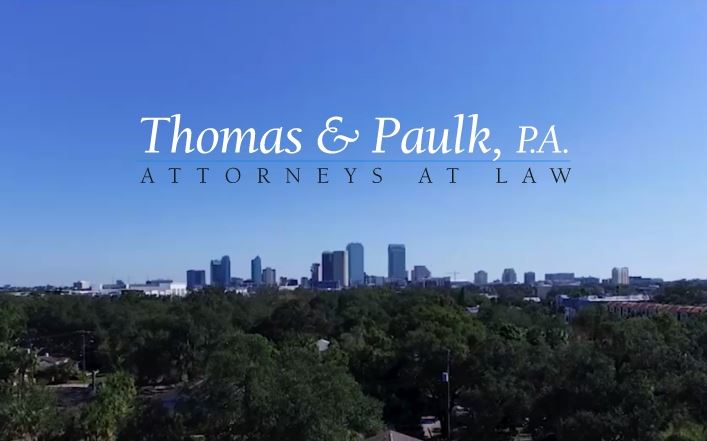
Tampa Sex Offender Registration
About Florida Sex Offender Requirements, Penalties & More
In Florida, a conviction for almost any sex crime will result in sex offender registration. This is a lifetime obligation that will dictate where a person can live and work. In many cases, a sex offender will not be able to live near a school or playground or work in specific fields, particularly those involving children. The social stigma associated with sex offender registration is also significant. The individual labeled as a "sex offender" may face alienation by friends, family members, and co-workers, not to mention the community as a whole.
Our firm fights to help people accused of or charged with sex crimes of any kind avoid convictions and therefore sex offender registration. By providing aggressive representation and thorough investigations, our Tampa sex offender registration lawyers can effectively defend clients who are facing the most serious sex crime charges.
About Sex Offender Registration
In Florida, sex offender registration information is made available online. The website is maintained by the Florida Department of Law Enforcement (FDLE) and allows visitors to find all sexual predators and offenders living in their area by running searches by city, county, or zip code. By law, the FDLE must post all information regarding predators who qualify under the Florida Public Safety Information Act (PSIA).
The FDLE is also authorized to post information regarding sex offenders on their public website. This information may include the following:
- Photo
- Physical description
- Crime information
- Registered address
Avoid Sex Offender Registration
A criminal attorney should truly believe in their client's innocence and fight to prove this in court. At times, however, proving factual innocence may not be a viable option. In these cases, it may be that law enforcement violated the defendant's rights at some point or that another violation of procedure or constitutional rights will lead to a dismissal of certain evidence or even dropped charges. Most importantly, these actions taken by a defense attorney will help the accused avoid sex offender registration, a lifetime label with disastrous effects.
If you are facing criminal charges for a sex offense, don’t hesitate to contact a Tampa criminal defense lawyer at our firm to have a former prosecutor fight your charges.
We're Here to Help
Sex offender registration can change the entire course of your life. It's time to fight for your future with a team of Tampa sex crime defense lawyers that has what it takes to protect your constitutional rights, share your side of the story, and help you face a brighter future.
Sex Offender Registration in Florida
Do I Need to Register as a Sex Offender?
Without knowing the facts of your case, we cannot definitively say if you will be required to register as a sex offender. In Florida, criminal defendants have to register as sex offenders if they have been “convicted of a qualifying sexual offense in Florida or another jurisdiction,” according to the Florida Department of Law Enforcement.
While this is not the complete list of registerable sex offenses, you will notice that many of these crimes involve young victims:
- Kidnapping a minor
- False imprisonment of a minor
- Luring or enticing a minor
- Human trafficking
- Unlawful sexual activity with a minor
- Trying to get a minor to engage in prostitution
- Selling or buying a minor for prostitution
- Selling or buying a minor for sex trafficking
- Child pornography-related offenses
- Sexual performance by a child under Sec. 827.071
- Sexual battery under Sec. 794.011 (not including subsection 10)
- Prohibited sexual misconduct under Sec. 393.135(2)
- Prohibited sexual misconduct under Sec. 394.4593(2)
Consequences of Failing to Register as a Sex Offender
As a registered sexual offender in Florida, you are required to comply with the state’s registration requirements; if you don’t, you could be arrested. If you fail to re-register, or if you fail to update your driver’s license number within 48 hours of moving, or if you fail to comply with any other requirements, you could be charged with a felony.
Sexual Predator Registration Requirements
Under Section 775.21 of the Florida Statutes, a sexual predator is someone who has been found guilty of a sexually violent offense. To be considered a sexual predator, a person must also have a written court order that designates them as such. An individual can also be designated as a sexual predator under the Florida Jimmy Ryce Sexually Violent Predator Act, and if they have a written order from the court designated them as a sexual predator.
If the court determines that you are a “sexual predator” or a “juvenile sexual predator,” you will be required to report in person to your local Sheriff’s Office and register not once, but four times a year, beginning with the month of your birthday and every three months after that. For example, if your month of birth is in January, and the court requires that you register FOUR times a year, you will have to register in: January, April, July, and October. On the other hand, if you have been named as a “sexual offender,” you are required to report to the Sheriff’s Office TWO to FOUR times a year, depending on the offense.
If the court designates someone as a sexual predator or a sexual offender, they must register as such for the rest of their life.
What Personal Information Must I Provide?
If you have been designated as a sexual offender or predator, you will be required to provide a significant amount of personal information about yourself, such as:
- Your name
- Date of birth
- Photograph of yourself
- Your occupation and where you work
- Your residential address
All of your information, including your photo, address, and arrest data, will be public and available for anyone to read, including employers and civilians, who can access this data on the public registry website, according to the Florida Department of Law Enforcement.
For more information and experienced insight, call (813) 221-4200.
-
We personally handle your defense strategy.
Our lawyers have been helping people just like you defend their future for decades.
View Results -
We always put our clients' cases and needs first.
Read our reviews to see what it is like working with our Tampa criminal defense law firm.
See Success Stories -
We're ready to hear your side of the story.
Tell us what happened to you during a completely free and confidential consultation.
Contact Us



